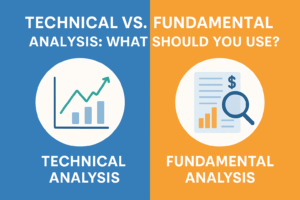Understand the Basics of Share Market Trading
Before diving into trading, it’s important to understand what the share market is. Simply put, it is a platform where investors buy and sell shares (ownership stakes) of publicly listed companies. The major stock exchanges in India are the Bombay Stock Exchange (BSE) and the National Stock Exchange (NSE). Prices of shares fluctuate based on market demand, company performance, and broader economic factors.
Set Your Financial Goals and Risk Appetite
Trading in stocks involves risks, and it’s crucial to evaluate your financial objectives and risk tolerance upfront. Are you looking for short-term gains through active trading or long-term wealth accumulation? Knowing this will shape your strategy and the types of stocks you choose.
Open a Demat and Trading Account
To start trading, you need two essential accounts:
- Demat Account: This account holds your shares electronically.
- Trading Account: This facilitates the buying and selling of shares.
Several financial institutions and brokers, including Arkstrade, offer combined Demat and trading accounts with user-friendly platforms and competitive brokerage plans.
Choose a Reliable Broker or Trading Platform
Select a broker that suits your trading style and offers robust tools, transparent charges, and reliable customer support. Platforms like Arkstrade provide real-time market data, advanced charting tools, and secure transaction processes, making it easier to execute your trades efficiently.
Learn to Analyze Stocks
Stock analysis is key to making informed trades. Two main types of analysis are:
- Fundamental Analysis: Evaluates a company’s financial health, earnings, management, and industry position.
- Technical Analysis: Studies price charts and market trends to predict future price movements.
Start with a Virtual or Small Investment
If you’re new, consider practicing on a virtual trading platform or start with a small investment. This helps you get familiar with the trading environment and build confidence without risking significant capital.
Develop a Trading Plan and Strategy
Successful trading requires discipline. Define your entry and exit points, stop-loss limits, and profit targets before placing trades. Stick to your plan and avoid emotional decisions based on market fluctuations.
Keep Learning and Stay Updated
he stock market is dynamic and influenced by global and domestic events. Regularly follow market news, company announcements, and economic indicators. Learning continuously and adapting your strategy is vital for long-term success.
Monitor Your Portfolio Regularly
Track your investments and review their performance periodically. Rebalance your portfolio if necessary to align with your evolving financial goals and market conditions.




